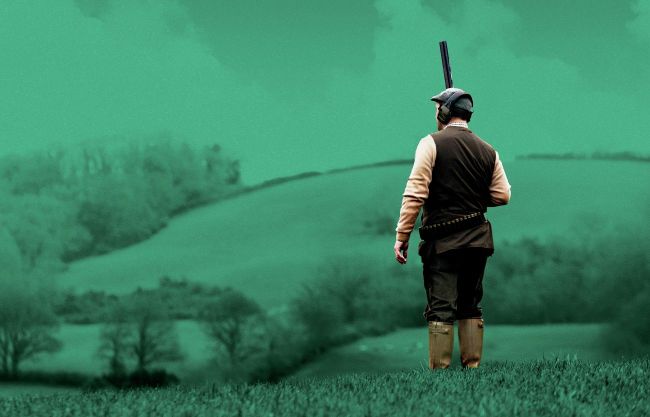
IMAGE: ISTOCK - RENE MANSI
As Secretary of the British Shooting Sports Council (BSSC), it’s a great privilege to introduce what I hope will be a regular column dedicated to keeping our community informed about the key issues shaping the future of licensed shooting in the United Kingdom. Ours is a sport and a way of life steeped in tradition, skill, and responsibility—but one that now faces a series of challenges requiring steady hands and clear voices to navigate. The BSSC has 15 partner organisations currently, and my intention will be to involve them in this column as well. It is always useful for us all to be well informed about each other’s sport and activities.
A SPORT UNDER PRESSURE
The number of certificate holders across the UK has been steadily declining over recent years. There are a variety of reasons behind this—social change, increasing costs, regulatory pressures, and, at times, a misunderstanding of who we are and what we do. Licensed shooting is one of the most highly regulated activities in the country, undertaken by responsible individuals who uphold the highest standards of safety, ethics, and respect for the countryside. Yet, despite this record, our community often finds itself on the defensive. The coming months and years will be particularly critical as several major policy developments come to the fore, each with the potential to shape the landscape of shooting for a generation.
ENCOURAGING THE NEXT GENERATION
That landscape will be very important for the future of the sport itself. Encouraging young people into shooting is not simply desirable— it’s essential. Without a new generation of participants, coaches, and enthusiasts, the tradition and expertise that underpin shooting sports will fade.
That means breaking down barriers to entry and providing safe, welcoming opportunities for young people to experience shooting in its many forms. Clay, airgun, rifle, and game shooting all offer unique pathways to develop discipline, concentration, and respect for our environment. Shooting teaches responsibility and community values—qualities that resonate well beyond the range or field.
The BSSC is working with member organisations to promote youth initiatives, strengthen links with schools and colleges, and support clubs in offering affordable entry routes for newcomers. We must celebrate success stories, showcase positive role models, and tell the real story of shooting—responsible, inclusive, and environmentally aware.
MANAGING THE TRANSITION AWAY FROM LEAD
Environmentally of course, the Government have relatively recently announced their intentions in relation to the transition away from lead ammunition. The decision to move toward non-lead alternatives is now well established both here and in the EU, and our task is to manage that transition responsibly, practically, and fairly.
The BSSC’s position is clear: we recognise the need to protect the environment and wildlife, but change must be achievable, evidence-based, and proportionate. The industry has already made considerable progress in developing effective non-lead ammunition options, and many shooters have already begun to adapt. However, there remain significant concerns about supply chains, ballistic performance, and cost— particularly for some areas of the sport where there is little in the way of an alternative to the lead that is currently used.
Our role is to ensure that the transition does not unfairly disadvantage shooters, manufacturers, or businesses. We are in continuous dialogue with government, agencies, and other stakeholders to ensure the implementation timeline reflects real-world readiness, not just regulatory aspiration.
THE FIREARMS LICENSING CONSULTATION
Another pressing issue is the government’s forthcoming consultation into firearms licensing. The BSSC has long advocated for a system that is both robust and proportionate— one that ensures public safety without imposing unnecessary burdens on lawful users. The significant drops in licence holders signpost a system that is, at best, creaking. The recent BASC report evidences some licensing areas where individuals can be waiting two years for a grant of a certificate. It is hard to see how a further change in legislation is going to help some force areas who are clearly already overwhelmed.
We will welcome the opportunity for dialogue with the Home Office and Government on this matter, and we will be vigilant in scrutinising any proposals that could undermine fairness, efficiency, or practicality in the licensing process. Delays, inconsistencies, and resource pressures have already placed strain on many certificate holders and police firearms departments alike.
Our aim is to contribute constructively— using evidence and experience—to help shape a system that is clear, consistent, and effective. Licensing must be about public safety and public confidence, not bureaucracy for its own sake.
BRINGING MODERATOR LICENSING REFORM INTO LAW
Lastly, one area where there is positive momentum is the proposed reform of moderator (sound suppressor) licensing. The government has announced its intention to simplify and modernise the rules governing moderators.
The BSSC strongly supports this reform and is actively assisting the Home Office to ensure the legislative changes are brought forward and implemented as soon as possible. It is a small but significant example of how thoughtful, practical regulation can benefit both shooters and the wider public.
LOOKING AHEAD
In all these matters, the BSSC’s role remains the same: to represent, inform, and protect the interests of lawful shooting in the UK. We are a broad church—encompassing every discipline and sector—but we share one vision: a vibrant, responsible, and sustainable future for shooting sports.
Our strength lies in unity. Whether you shoot clays, deer, targets, or game, your voice matters. I encourage all shooters to stay engaged, stay informed, and support the organisations working on your behalf. Together, we can ensure that licensed shooting not only survives but thrives for generations to come.
GET IN TOUCH
0203 6030103
bssc.org.uk